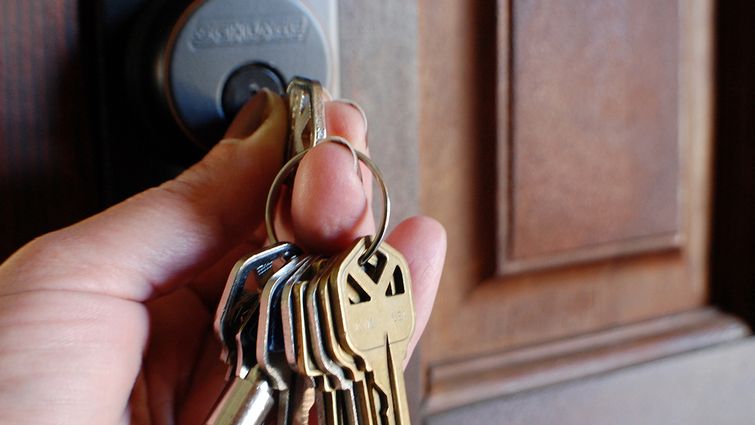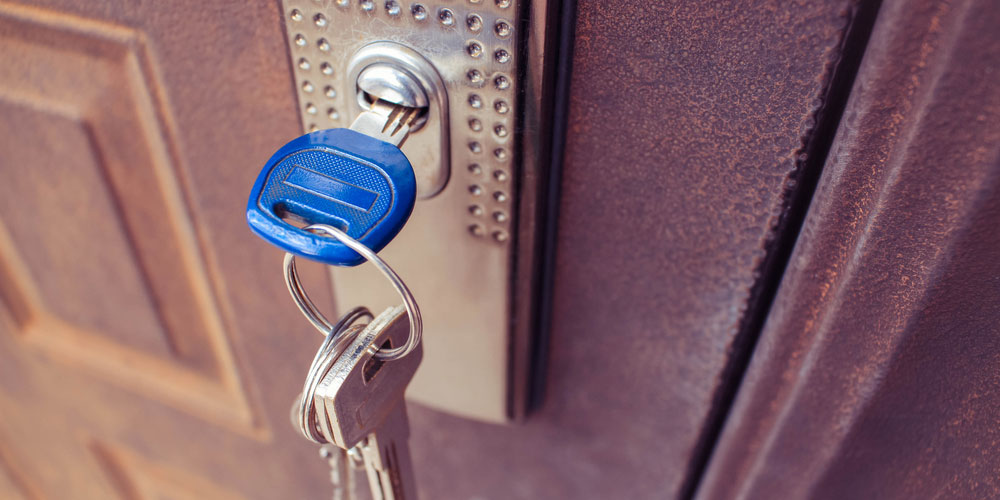Two different keys can open the same lock in certain situations! This usually happens with locks designed for multiple keys, like master key systems in hotels. Sometimes, a lock might be old or poorly made, allowing a different key to work by chance. It’s rare, but identical key cuts can occur, especially in simple locks with fewer combinations. It is essential to use high-quality locks for maximum security. These locks are less likely to accept the wrong key. Remember, a good lock keeps your belongings safe by making sure only the right key works!

Definition of a lock and its purpose in security
A lock is a fascinating device that people have used for centuries to protect their belongings and ensure privacy. In simple terms, a lock is a mechanical or electronic tool that secures something, like a door, a box, or a suitcase, by requiring a key, a code, or a fingerprint to open it. It’s like a loyal guard, keeping your treasures safe from unwanted hands.
The primary purpose of a lock is to provide security. It acts as a barrier, stopping unauthorized access to our homes, offices, cars, and personal items. Imagine a lock as a gatekeeper, standing firm between your valuable things and the outside world. It makes decisions about who enters and leaves.
Locks come in many shapes and sizes. You have traditional locks with keys, combination locks where you spin a dial or enter a number, and modern locks that use technology like keycards or biometrics. Each type of lock has its unique way of protecting things. Key-based locks interact with a specific key shape to unlock, combination locks need a secret number, and high-tech locks might require your fingerprint or a special card.
Locks also symbolize trust and privacy. When you lock something, you’re saying, “This is mine, and I want to keep it safe.” You trust the lock to guard your things when you’re not around. In our homes, locks on doors and windows give us a sense of safety, letting us relax and feel secure.
Moreover, locks play a big role in our daily lives, often without us noticing. They support business operations by protecting important documents and resources. They protect our vehicles and make sure our personal belongings, like laptops or diaries, stay private.
The Possibility of Two Different Keys Opening the Same Lock
It’s a fascinating issue to investigate if two different keys can unlock the same lock. Let’s see this fascinating aspect of locks and keys.
Basic Lock Mechanics: Understanding how a lock works is key. Most locks have pins or wafers that a key needs to align correctly to open the lock. The lock shouldn’t open if the key doesn’t fit the setup.
Master Key Systems: Some locks, especially in hotels or large buildings, work with a master key system. This system allows one ‘master’ key to open multiple locks, each also opened by their unique key. It’s like having a VIP pass that gives access to several rooms, each with its standard key.
Worn-Out Locks: Over time, locks can wear down. This can make them less accurate, sometimes making it possible to unlock the lock with a different key if they are close enough. Think of it like an old glove that stretches out to fit a slightly different hand.
Manufacturing Defaults: Occasionally, manufacturers might produce locks with identical configurations. This means that keys from one lock might coincidentally fit another. It’s rare, but it’s like accidentally finding someone with the same house key as yours.
Lock-Picking Techniques: Lock-picking tools mimic key actions to trick the lock into opening. While not a key per se, it demonstrates how locks can be fooled by tools mimicking a key’s action. This is why high-security locks are crucial for important assets.
Customized Locks for Higher Security: For higher security, people use locks with more complex and unique configurations. These locks are less likely to be opened by any other key, reducing the chances of unauthorized access.
Advancements in Lock Technology: With technology advancing, electronic or smart locks offer more security. They often use codes, biometrics, or smart devices instead of traditional keys, making it harder for two different ‘keys’ (like codes or fingerprints) to open the same lock.
Impact of Key Quality and Type: The quality and type of the key also play a role. Higher quality, more complex keys are less likely to be duplicated or replaced by another key.
While it is occasionally possible to unlock a lock with two distinct keys, this is uncommon with well-made, high-quality locks. The evolution of lock technology continues to enhance security, making such occurrences even rarer.

Disadvantages of Using the Same Key for All Locks
Using the same key for all locks might seem like a simple solution, but it comes with several disadvantages. Let’s break them down:
Security Risk: If you lose that one key, every lock it opens becomes vulnerable. It’s like putting all your eggs in one basket and then dropping it!
Easy Target for Thieves: If a thief gets hold of your key, they have access to every lock it opens. This can be a major problem, especially if it’s a key to your home and office.
Lack of Individual Control: In a setting with multiple users, like an office, using the same key for all locks limits individual security control. Not everyone should access all areas.
Inconvenience in Rekeying: If you need to change locks for security reasons, you have to rekey all locks, not just one. This can be time-consuming and costly.
Difficulty in Tracking Access: It’s hard to track who enters where when everyone uses the same key. In delicate locations where access needs to be track, this can be a serious disadvantage.
Limited Flexibility: Using the same key for all locks doesn’t allow for flexible security levels for different areas. Some places need more security than others.
While using the same key for all locks might seem convenient, it poses significant security risks and practical challenges. It’s essential to weigh these disadvantages against the convenience to ensure the safety and security of your spaces.
